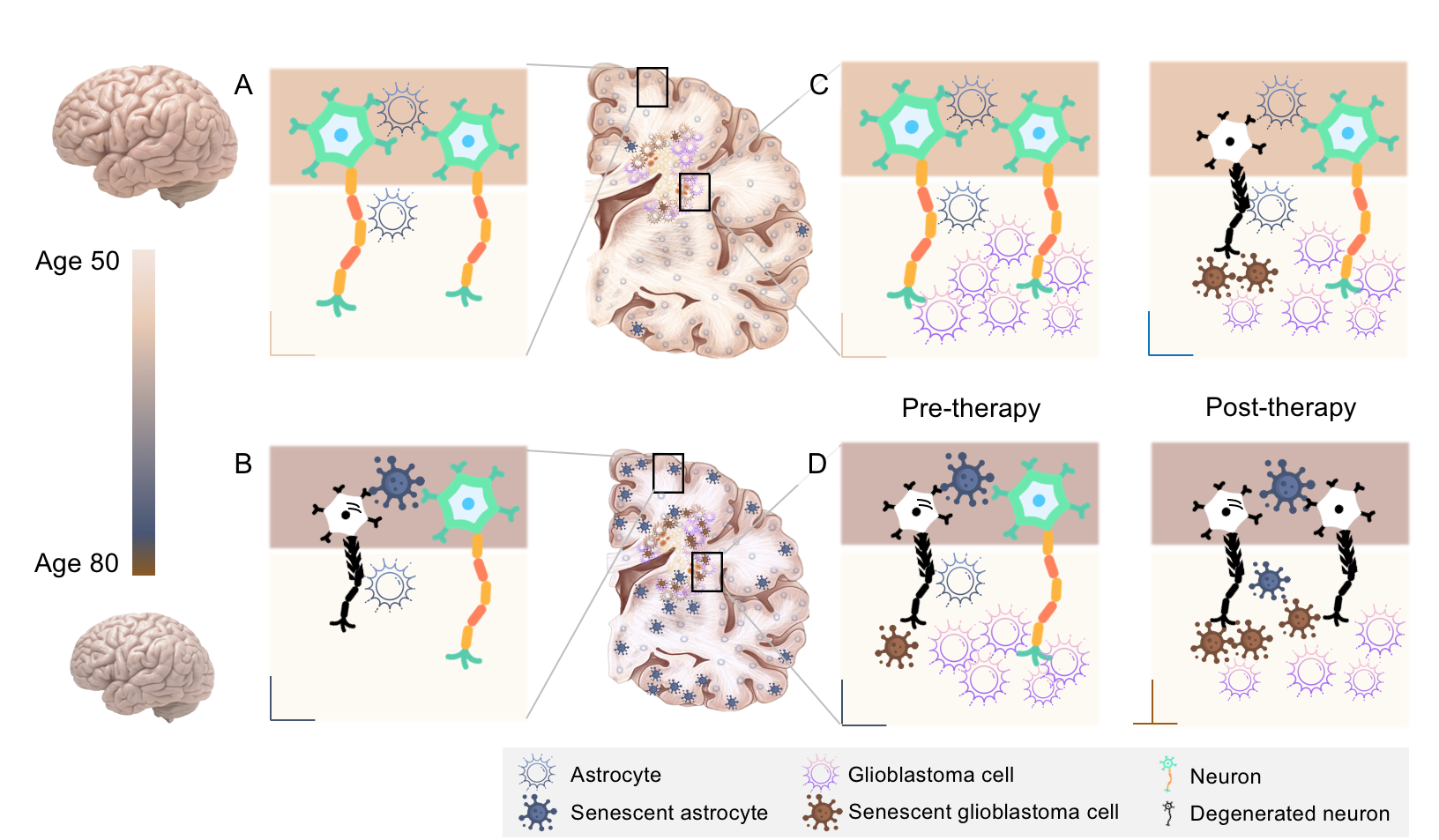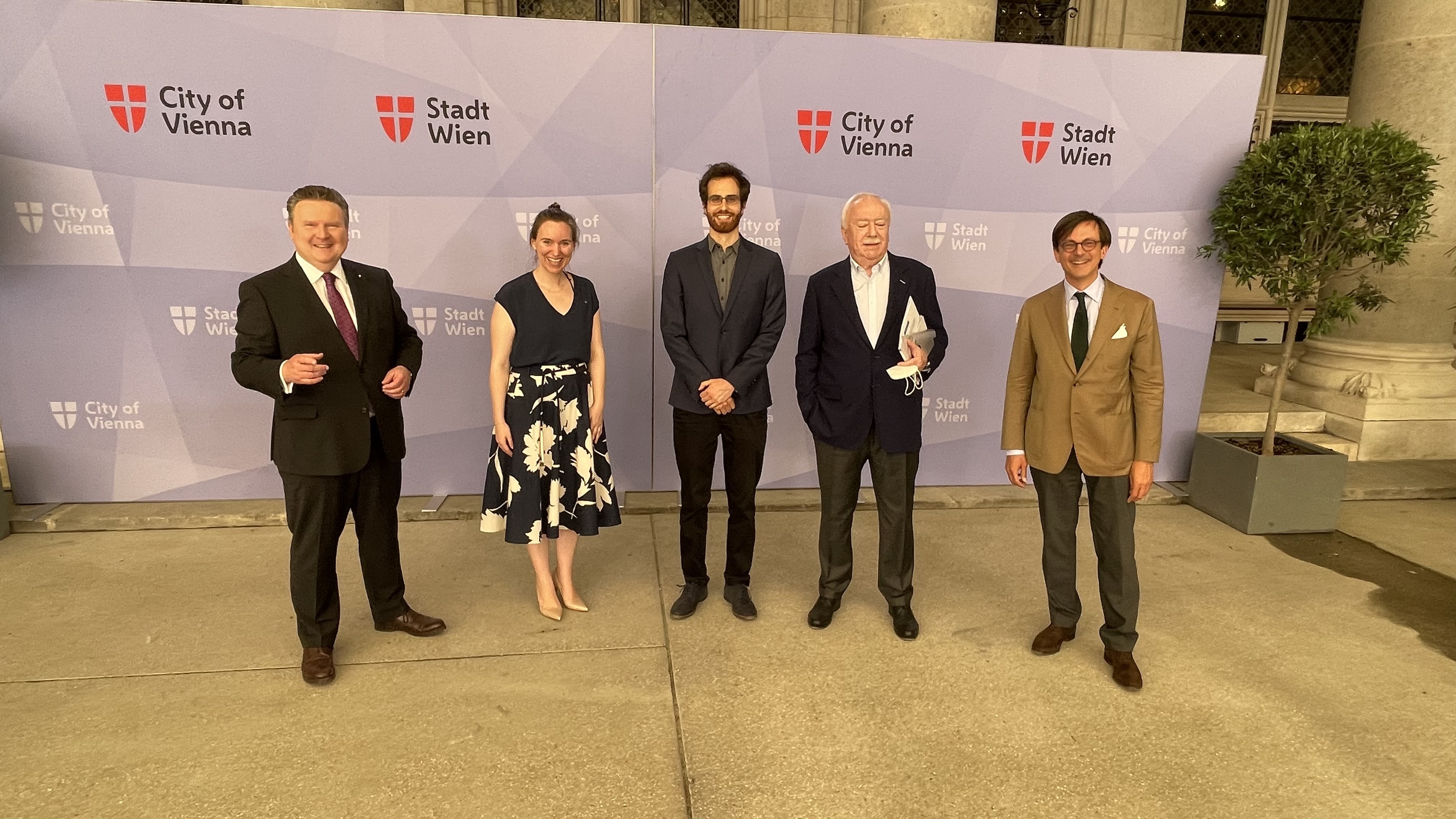Decoding cellular senescence in glioblastoma
WWTF Website:
https://www.wwtf.at/funding/programmes/ls/LS20-034/
PIs: Adelheid Wöhrer, Peter Stepper, Gabor Kovacs
Funding: € 898.970
301904 - Cancer research (40%) | 301402 - Neurobiology (30%) | 106014 - Genomics (30%)
Glioblastoma is an aggressive type of brain cancer that is prevalent and fatal in the elderly. Patients with glioblastoma are at increased risk of Alzheimer’s disease, and recent evidence suggests that senescent glial cells, key mediators of brain aging, contribute to both diseases.
There is strong enthusiasm about the potential of senolytic therapies for diseases of old age. However, we currently lack coherent models of how senescent cells drive tumor evolution, or how they respond to therapies.
The proposed project aims to dissect senescent cell states in glioblastoma and to evaluate their impact on tumor fitness and neuronal loss. We hypothesize that senescent cell states in glioblastoma recapitulate important transcriptional programs of non-tumor glial cells, including their ability to promote neuronal degeneration. Newly established single-cell multi-omics technology provides a unique opportunity to test this hypothesis directly in patient samples. We will investigate single-cell epigenomes and transcriptomes to uncover the cellular plasticity of senescent phenotypes and to infer the underlying gene regulatory networks, which we will validate by CRISPR single-cell sequencing.
Collectively, these experiments will provide fundamental insights into the role of senescence in the progression of glioblastoma and its contribution to cognitive decline, while also advancing a promising new therapeutic approach for this lethal cancer.
Das Glioblastom ist ein besonders aggressiver Hirntumor, der bevorzugt im höheren Lebensalter auftritt. Alter ist nicht nur der stärkste Risikofaktor, sondern auch ein entscheidender Prädiktor des Überlebens. In diesem Projekt gehen wir der Frage nach, wie biologische Alterungsprozesse das Wachstum dieser Tumore und ihre Kommunikation mit dem umgebenden Gehirn beeinflussen. Um diese Frage zu beantworten, verwenden wir Methoden und Erkenntnisse aus der Alzheimer-Forschung, wo die Rolle des alternden Gehirns bereits besser verstanden wird. Wir kombinieren innovative Methoden wie Einzelzell-Sequenzierungen und CRISPR-Screens, um ein detailgetreues Bild des Glioblastoms im alternden Gehirn zu skizzieren und zu verstehen, wie gealterte "seneszente" Tumorzellen zu Tumorprogression und Degeneration von Nervenzellen beitragen.
Dieses Projekt ist von hoher Relevanz, weil es neue Synergien zwischen den Bereichen der Neuroonkologie und der Neurodegeneration etabliert, wichtige Impulse in der geriatrischen Krebsforschung setzt und die Grundlage für eine präzise Anwendung von senolytischen Therapien schafft.
Core Team

PI - Adelheid Wöhrer
NPC, Medical University of Vienna, Austria
Twitter: @Woehrerlab
Lisa Greutter - Biomedical technician and PhD student

Lisa Miller-Michlits - Bachelor student University of Vienna


PI - Peter Stepper

PI - Gabor G. Kovacs
Professor, University of Toronto, Department of Laboratory Medicine and Pathobiology, Department of Medicine/Division of Neurology
PI Tanz Centre for Research in Neurodegenerative Disease (CRND)
Consultant Neuropathologist/Neurologist, University Health Network (UHN)
Laboratory Medicine Program and Krembil Brain Institute
News
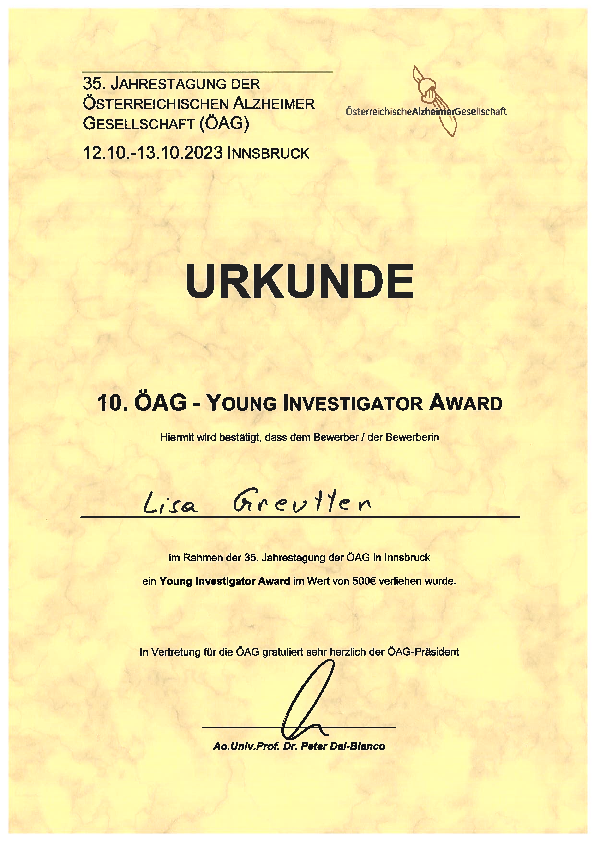
Österreichische Alzheimer Tagung 2023
12.10.2023 bis 13.10.2023, Innsbruck
Vortrag Lisa Greutter 12.10.2023: Amyloid-beta und tau Pathologie bei Patientinnen mit niedriggradigen Gliomen
Vortrag Adelheid Wöhrer 13.10.2023: Premature brain aging in brain cancer patients
Awards: Lisa Greutter: Young Investigator Award 2023
International Congress of Neuropathology 2023
12.09.2023 bis 16.09.2023, Berlin
Posterpräsentation Lisa Greutter 14.09.2023: Co-morbidity of glioblastoma and Alzheimer-type neurodegeneration in the elderly brain
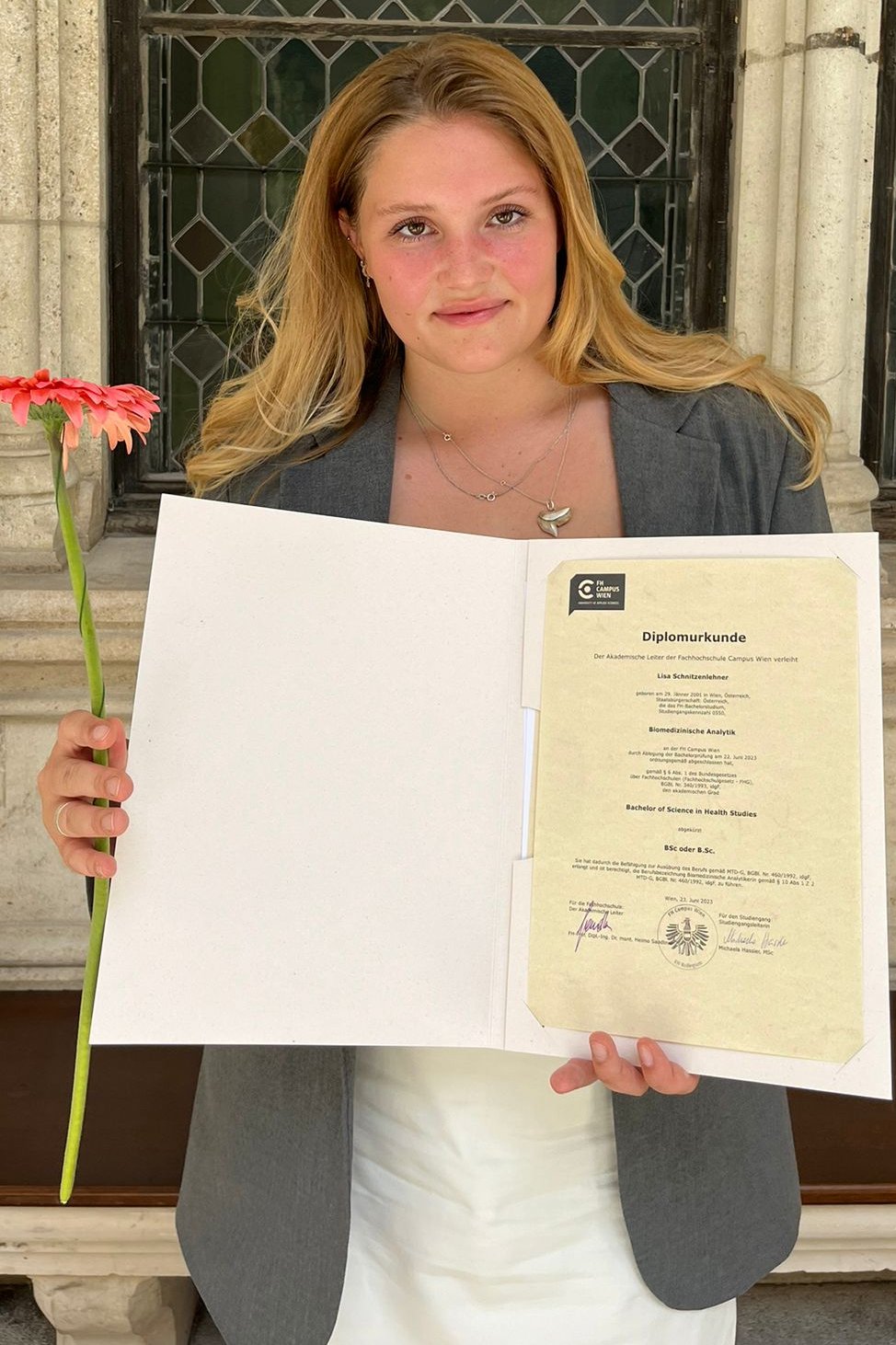
Bachelor's thesis Lisa Schnitzenlehner
June 2023
This study explores the co-occurrence of glioma and Alzheimer's-like changes in nearby cortex tissue. Glioma, a prevalent malignant brain tumor, is classified by histological and molecular traits. Alzheimer's is a neurodegenerative condition marked by beta-amyloid and tau deposits. Given their increased incidence in aging brains, a biological link is suspected. The goal was to detect Alzheimer-like pathologies in the glioma-surrounding cortex and to assess influencing factors. Tissue samples from 85 patients with low-grade glioma and adjacent cortex were examined for Alzheimer-related markers. Findings showed concurrent low-grade glioma and neurodegeneration in 62% of cases, primarily associated with tau pathology, potentially linked to glioma duration. Age notably affected pathology patterns, underscoring the need for further research into shared pathogenic mechanisms between glioma and Alzheimer's.
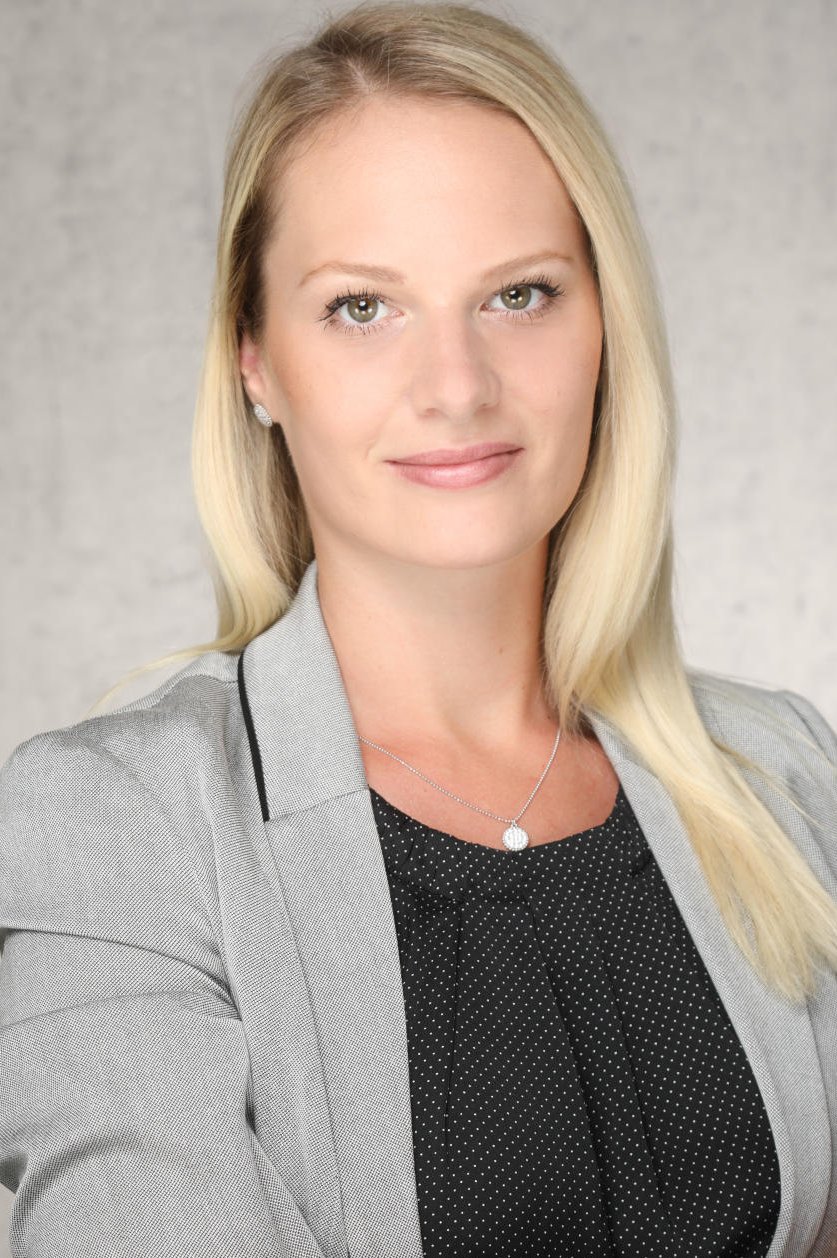
Bachelor's thesis Stefanie Potucek
June 2023
This study aims to assess whether a combined immunohistochemical double staining of p21waf1/chip1 and p16INK4a antibodies enhances specificity in identifying senescent cell states compared to using a single antibody. The study involved 29 patients with a diagnosed glioblastoma. Results revealed the presence of senescent cell states in both adjacent cortex and tumor tissue of GBM patients, with 24 samples exhibiting positive staining for p16 and p21. Interestingly, age did not influence these findings. This study's outcomes contribute to a more accurate identification of senescent cells and enhance our understanding of the distribution of senescence-associated markers, particularly p16 and p21, in relation to location and age.
Young Scientist Association PhD Symposium 2023
06.06.2023 bis 07.06.2023, Wien
Posterpräsentation Lisa Greutter 06.06.2023: Co-morbidity of glioblastoma and Alzheimer-type neurodegeneration in the elderly brain

Bachelor's thesis Lisa Miller-Michlits
February 2023
Glioblastoma (GBM), a WHO grade 4 brain tumor, typically carries a less than 50% chance of survival beyond 15 months. Current treatment involves surgical resection, Temozolomide (TMZ) chemotherapy, and radiotherapy. Response to TMZ is partially predicted by MGMT gene promoter methylation status. This study introduces a novel approach using patient-derived GBM tissue samples in an in-vitro tissue slice culture model to evaluate individualized drug response. The strategy combines standard treatment with senolytic drugs Dasatinib and Quercetin to target treatment-induced senescent cells, which can promote tumor regrowth. Results demonstrate the efficacy of this model in assessing treatment outcomes on a patient-specific level, with promising reductions in tumor cell proliferation, particularly in MGMT methylated tumors. The combined standard therapy and triple therapy with senolytic drugs shows greater effectiveness compared to TMZ monotherapy or radiotherapy alone, highlighting the potential of senolytics in GBM treatment. This study underscores the value of tissue slice cultures as a forward-looking model for future research.
Neuroscience Wintermeeting 2023
19.01.2023 bis 20.01.2023, Wien
Vortrag Lisa Greutter 19.01.2023: Alzheimer-ähnliche Veränderungen in der Glioblastom-angrezenden Hirnrinde
Vortrag Elena Krause 19.01.2023: Senescent Microglia in GBM and AD
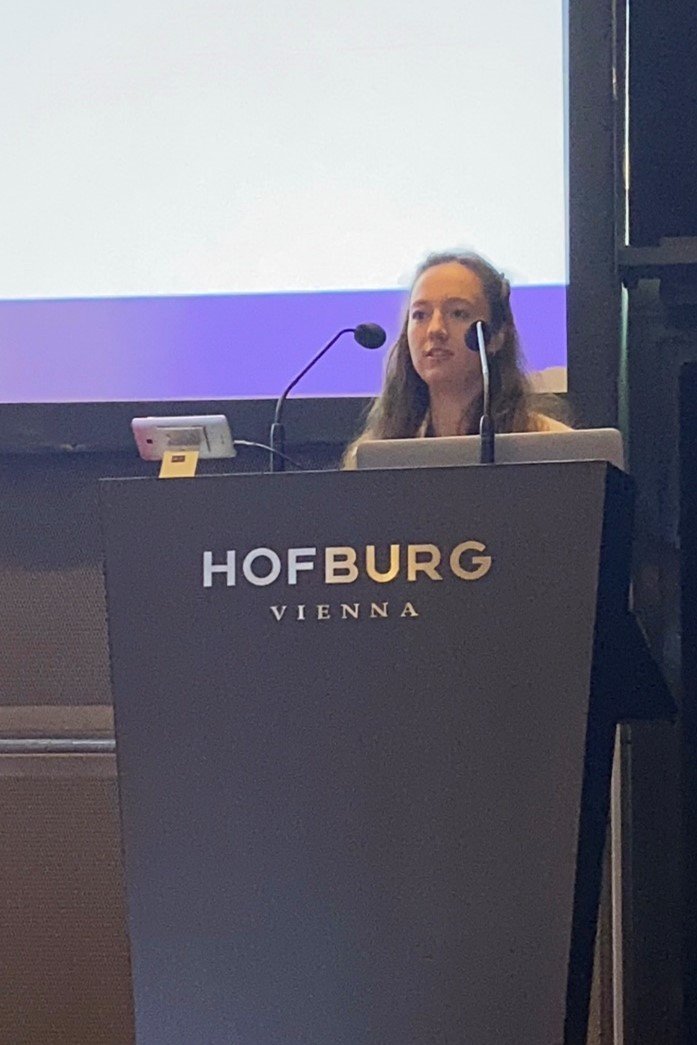
European Association of Neuro-Oncology Meeting 2022
15.09.2022 bis 18.09.2022, Wien
Vortrag Lisa Greutter 16.09.2023: Alzheimer-type neuropathological changes in glioblastoma-adjacent cortex
Lisa Greutter presented preliminary GlioAge results at the international EANO meeting. Screening 200 patients with glioblastoma and 385 tissue samples containing tumor plus adjacent brain cortex yielded Alzheimer-type pathology in 55.5 % of the patients. Alzheimer-type pathology was more abundant in females and correlated strongly with age. Interestingly, cortical tau-load increased with density of tumor-cell infiltration.
Wissenschaftsbeitrag ORF Wien: https://wien.orf.at/stories/3108681/
Nach der Aktivierung werden Daten an YouTube übermittelt. Weitere Infos hier: Datenschutzerklärung
Pressemitteilung MedUni Wien - WWTF-Life Sciences Call 2020 - Adelheid Wöhrer

